Sustainability Ratings Charts
Below you’ll find an overview of potential alternatives that can be used to replace single-use plastic products in restaurants or bars.
The potential alternatives are listed on a scale of 0–10.
A solution rated 0 has the least negative impact, a solution rated 10 has a high negative impact and corresponding traffic light colours provide a more visual demonstration.
All suggested alternatives are compliant with the EU Plastics Directive.
Alternatives to single-use plastic bottles
According to our research the best option to offer water to your guests is by using tap water (if safe to drink or filtered) or water stations with reusable glasses / bottles.
Make sure that the measure is well communicated to guests and staff and that everyone is provided with or has access to a reusable glass / bottle.
If providing tap water or installing water filter station is not possible in your region you can check whether one of your suppliers offers medium glass water bottles with a return system which has a better impact on the environment than disposable bottles.
See our Decision Tree for Water Bottles to make a more informed decision.
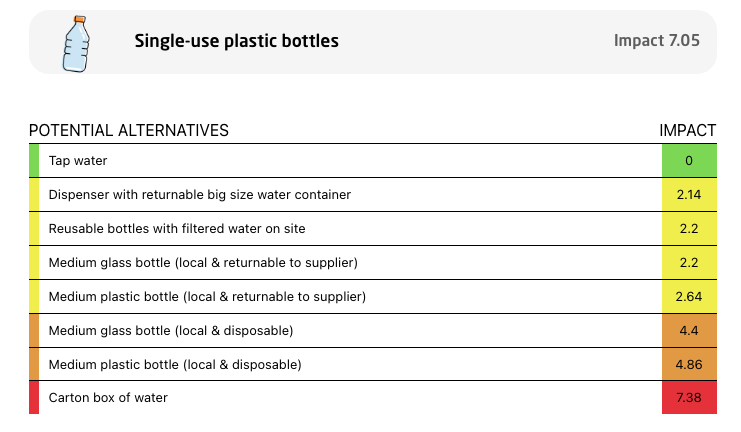
Alternatives to single-use plastic cups
Single-use plastic cups have a high negative impact on the environment. It is recommended to replace them with reusable cups made from glass or hard plastic as they can be washed, don’t break and save a lot of waste.
Single-use plastic cups should not be replaced by products made of paper or other single-use materials. These products create a lot of waste as well and put pressure on other resources.
For example, paper cups and containers are often lined with plastic to avoid sipping and cannot be recycled as the two materials (plastic / paper) cannot be separated.
See our Decision Tree for Single-use Plastic Cups as well as our Standard Operating Procedure for Reusable Cups and Glasses to make a more informed decision.
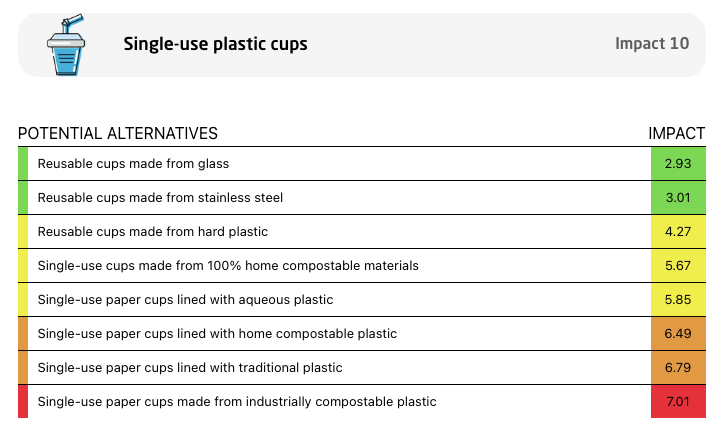
Alternatives to single-use plastic food containers
Single-use plastic containers should not be replaced by products made of bamboo or other single-use materials. These products create a lot of waste as well and put pressure on other resources.
For example, paper containers are often lined with plastic to avoid sipping and cannot be recycled as the two materials (plastic / paper) cannot be separated.
Provide reusable containers, e.g. made of hard-plastic. They can be washed in the dishwasher, don’t break and save a lot of waste.
See our Decision Tree for Single-Use Food Containers as well as our Standard Operating Procedure for Reusable Food Containers to make a more informed decision.
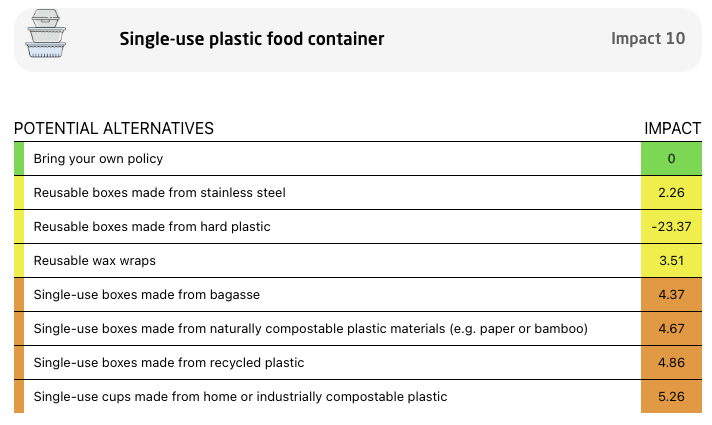
Alternatives to plastic / aluminium coffee capsules
Around 56 billion coffee capsules are consumed globally every single year with just 30% of these being captured for recycling by the suppliers that make them.
There exist a wide range of solutions to provide coffee in a way that avoids single-serve products and reduces the negative impacts on the environment and climate.
The most sustainable alternative is providing ground coffee for guests in cafetières or filter coffee pots with the ground coffee coming from large (bulk buy size) bags.
A cafetières does require some important changes to processes and procedures so that cafetières and loose coffee are provided hygienically without impacting the guest experience.
See our Decision Tree for Coffee Capsules as well as our Standard Operating Procedure for coffee capsules for further information.
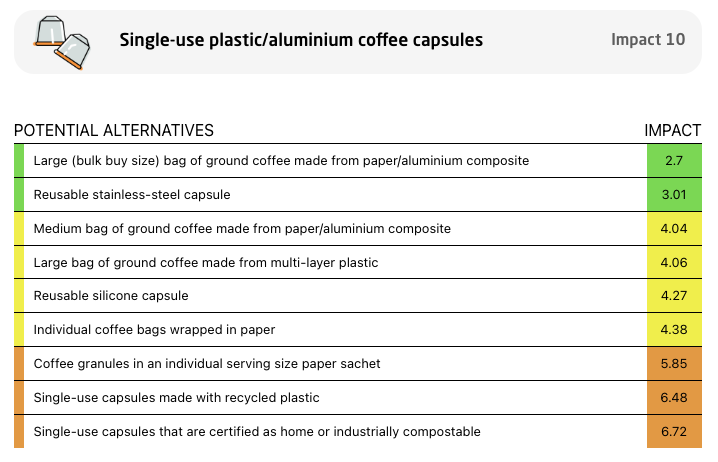
Alternatives to plastic wrapped tea bags
Single-use tea bags are convenient as they are easy and quick to use. Unfortunately, most of the tea bags contain polypropylene, a type of plastic which are woven between the paper threads to give the bag strengths. Furthermore, single-use tea bags produce a lot of waste.
By providing loose-leaf tea stations you improve not only the quality of your offer but also reduces the amount of single-use waste significantly.
And it is easy: provide loose-leaf tea in bowls or sealable jar with a spoon and make sure there are enough teapot infusers available for your guests. Guests can then make their own tea. You can even compost the used tea leaves.
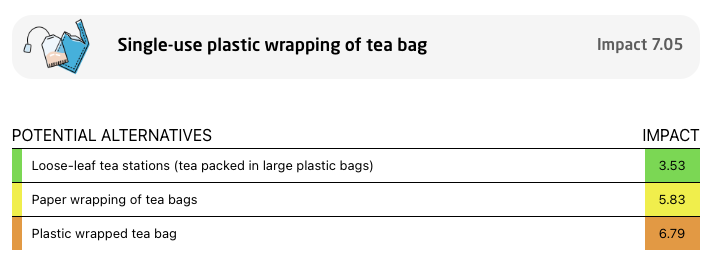
Alternatives to jams and sauces in single-use plastic sachets
Jams, honey, ketchup or oil provided in single-use plastic sachets produce a lot of unnecessary plastic waste and have a high negative impact on the environment.
Consider providing jams and honey as well as ketchup and sauces in glasses or bowls, the jam coming from large format bottles. Oil can be provided carafes or bottles with the oil coming from large format aluminium cans. Both alternatives do not only reduce your single-use waste significantly they also improve the quality of your offer as guests can choose the amount of the food needed.
See our Decision Tree for Jams and Sauces in single-use plastic sachets for further information.
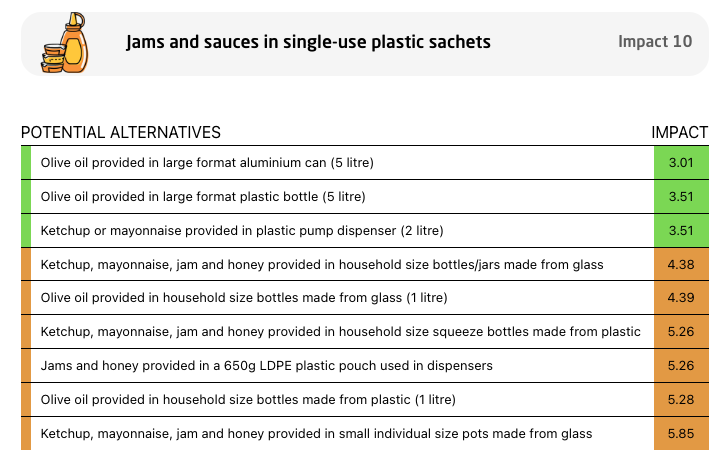

:format(webp))
:format(webp))